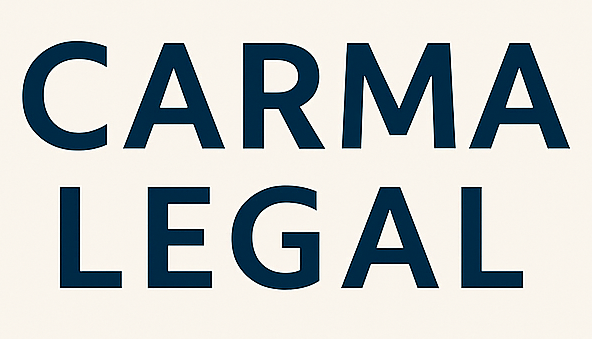When you are injured in an Uber crash, hiring an Uber accident lawyer is one of the most important decisions you can make to protect your rights and secure fair compensation. An experienced attorney will guide you through complex insurance issues, fault determinations, and legal deadlines. This article walks you through what to expect at every stage of your case—from the moments after the collision to the resolution of your claim—so you can focus on your recovery with confidence.
Take immediate actions
Right after an accident, prompt steps will strengthen your case and make it easier for your lawyer to build a detailed claim.
Document accident scene
- Take clear photographs of all vehicles, road conditions, skid marks and visible injuries
- Note the time, date and exact location of the crash
- Collect names, phone numbers and insurance details of witnesses
- Preserve any app notifications or ride receipts that show the driver’s status
These measures, recommended by Drazin & Warshaw, help establish liability and protect evidence that can otherwise be lost or altered [1].
Seek medical evaluation
You should obtain a thorough medical exam even if injuries seem minor. Early documentation of injuries:
- Confirms the connection between the crash and your symptoms
- Prevents insurance companies from arguing preexisting conditions
- Provides crucial medical records for your claim
Report to authorities
- Call 911 or local police so an official accident report is filed
- Notify Uber through the app, but only share factual details
- Keep a copy of the police report and any ride-sharing incident report
Attend initial consultation
Your first meeting with a lawyer sets the tone for the case and outlines next steps.
Prepare documentation
Bring to your consultation:
- Police and ride-share reports
- Medical records and bills
- Pay stubs showing lost wages
- Photos, witness contacts and correspondence with insurers
Having these materials ready allows your attorney to assess your case accurately and advise on potential remedies.
Discuss case details
Your lawyer will:
- Review the facts and timeline of the crash
- Explain applicable insurance policies and coverages
- Identify potential defendants—Uber, the driver’s personal insurer, or third parties
- Outline a fee agreement and contingency structure
A clear initial discussion helps you understand the legal process and what your attorney will do on your behalf. You may also explore resources for a broader range of collisions, such as a car accident attorney.
Conduct case investigation
Once engaged, your lawyer dives into fact-finding to build a compelling claim.
Gather evidence
- Obtain digital records from Uber, including GPS logs and driver status
- Retrieve traffic camera or surveillance footage
- Secure your medical and employment records for damages calculations
Interview witnesses
Your attorney will reach out to bystanders, passengers and other drivers to capture consistent accounts of the collision. Their statements can bolster your version of events and pinpoint fault.
Consult experts
In complex cases, specialists may be retained:
- Accident reconstruction engineers
- Medical professionals to testify on injuries and prognosis
- Vocational experts to assess long-term earning capacity
This thorough approach ensures that every aspect of liability and damages is documented.
Navigate insurance claims
Your lawyer handles communications with multiple insurers and leverages policy rules to maximize recovery.
Understand coverage phases
Uber’s liability coverage varies by driver status. A rideshare accident lawyer will determine which policy applies in your case:
| Driver status | Coverage provided |
|---|---|
| App off | Driver’s personal auto insurance |
| App on, waiting for a request | Limited contingent liability, typically covering third-party damages [2] |
| En route or passenger onboard | Up to $1 million commercial liability per incident [3] |
Handle adjuster negotiations
Insurance adjusters aim to minimize payouts. Your attorney will:
- Communicate all medical records and evidence
- Push back on requests for lowball offers
- Manage deadlines for policy responses
- Escalate disputes through formal demand letters
If Uber’s coverage is insufficient, your lawyer can explore a claim under your own uninsured or underinsured motorist policy by consulting an uninsured motorist claim lawyer.
Assess compensation potential
A core task of your attorney is to calculate full and fair damages for your losses.
Calculate economic damages
These are out-of-pocket costs, including:
- Medical expenses (emergency care, ongoing therapy)
- Lost wages and benefits during recovery
- Future medical or rehabilitation needs
- Diminished earning capacity if your injury impacts your work ability [2]
Quantify non-economic damages
Your lawyer assigns a value to:
- Pain and suffering
- Emotional distress
- Loss of enjoyment of life
- Scarring or disfigurement
Include long-term costs
Severe injuries often entail lifelong care. Your lawyer may consult actuarial tables and medical experts to project:
- Future home modifications
- Assistive devices
- Ongoing personal care services
Manage claim filing
Your attorney ensures all procedural requirements are met, avoiding missed deadlines or technical missteps.
Meet deadlines
- Statute of limitations varies by state but typically ranges from one to three years after the crash
- Early filing preserves evidence and prevents surprise statute issues
Draft demand letter
A detailed demand sets out:
- Summary of facts and liability proof
- Itemized damages
- Deadline for insurer response
- Consequences of litigation if no settlement is reached
File lawsuit if needed
If negotiations stall, your lawyer will:
- Prepare a formal complaint
- Serve defendants according to court rules
- Manage discovery—document requests, depositions and expert reports
- Represent you at hearings and mediations
Expect lawyer support
Your legal team plays many roles beyond paperwork—advocate, strategist and advisor.
Communicate regularly
- You should receive status updates at key milestones
- Your attorney should be reachable to answer questions promptly
- Ask for explanations of legal concepts and next steps
Clarify fee structure
Most Uber accident cases operate on a contingency fee basis:
- No upfront costs
- Attorney fee is a percentage of your net recovery
- Confirm any additional expenses for experts or court costs
- Review a sample agreement, similar to what a settlement lawyer for car accidents would provide
Track case timeline
Understanding typical case phases helps set realistic expectations.
Early case milestones
- Initial investigation and evidence gathering (1–2 months)
- Demand letter and insurer response (1–3 months)
- Discovery and expert reports (3–6 months)
Settlement vs trial
- Many cases settle before trial, often during mediation
- If a fair offer is not forthcoming, your lawyer prepares for trial—jury selection, opening statements, witness examinations
- Trials can extend the timeline by several months to a year, but may yield higher awards when liability is clear
Take next steps
As your case moves toward resolution, stay proactive to protect your interests.
Review settlement offers
- Compare offers against your current and future expenses
- Discuss pros and cons of accepting versus continuing litigation
- Ensure any release language does not waive unrelated rights
Prepare for closure
- Upon settlement approval or verdict, your lawyer handles final paperwork
- Medical liens, subrogation claims and attorney fees are resolved
- Funds are disbursed, leaving you free to focus entirely on recovery
By understanding what to expect from your Uber accident lawyer, you can approach each stage with confidence and clarity. The right legal advocate will relieve stress, handle intricate insurance rules, and fight for maximum compensation so you can concentrate on healing and rebuilding your life.








